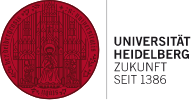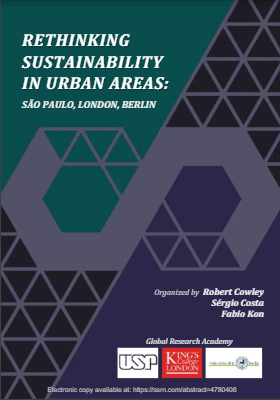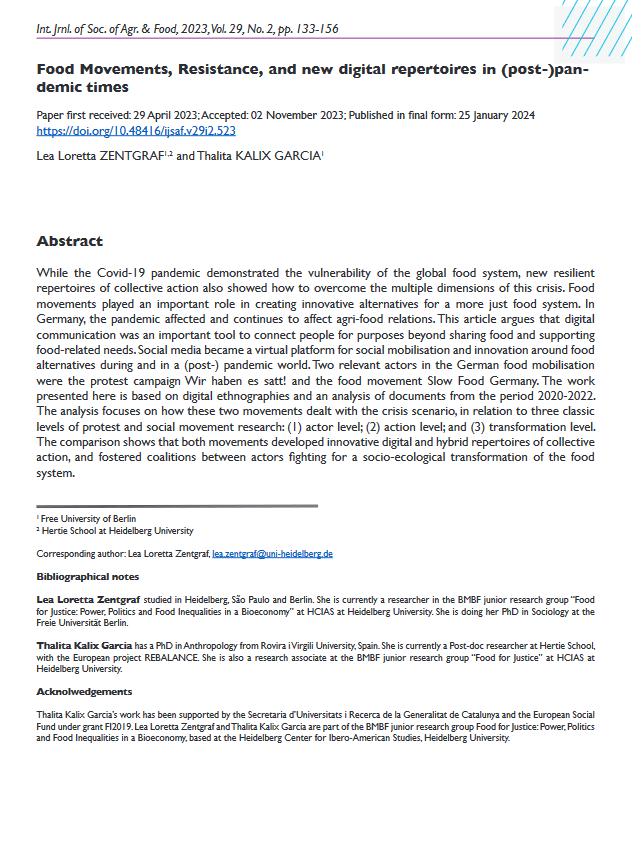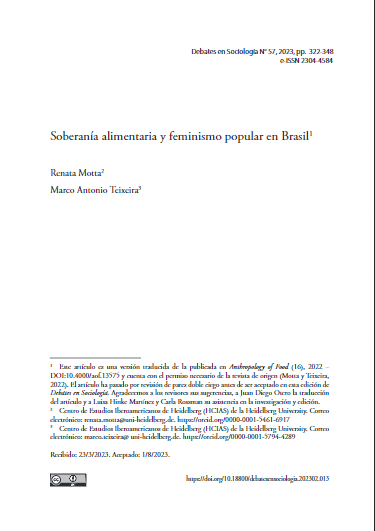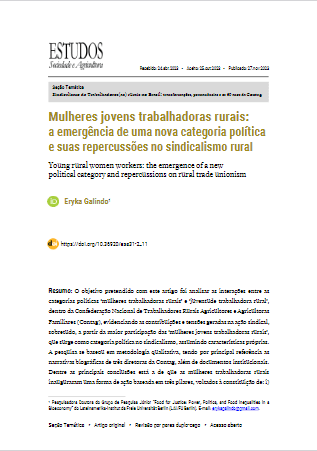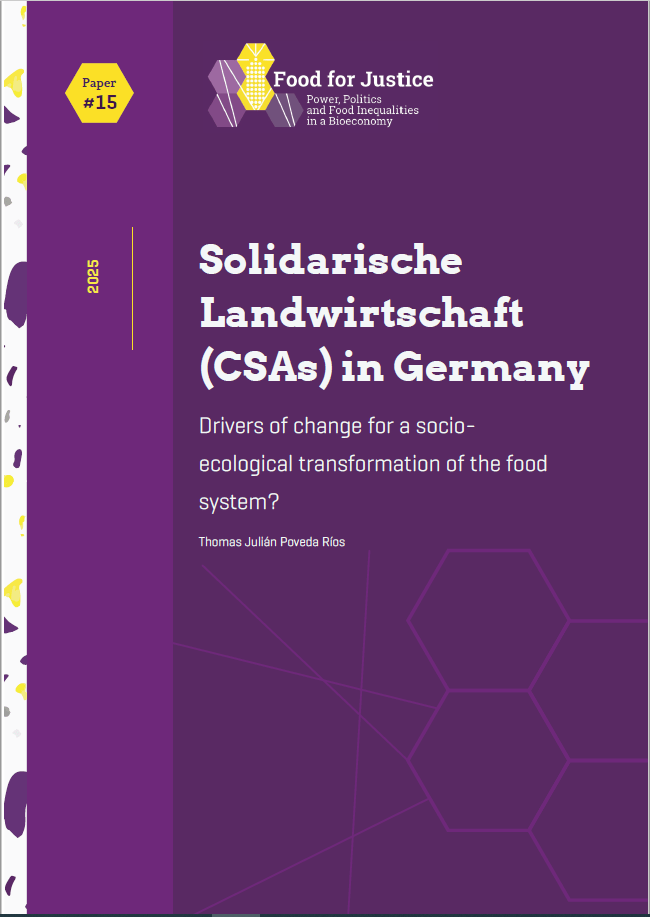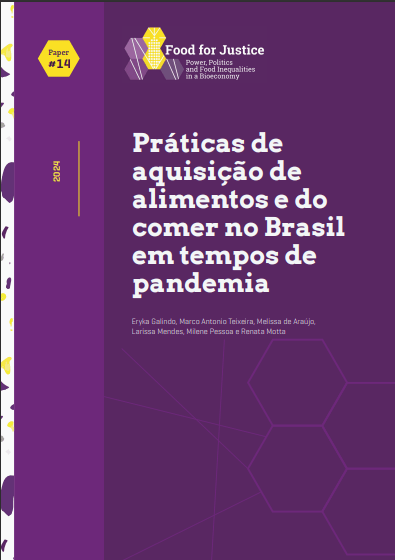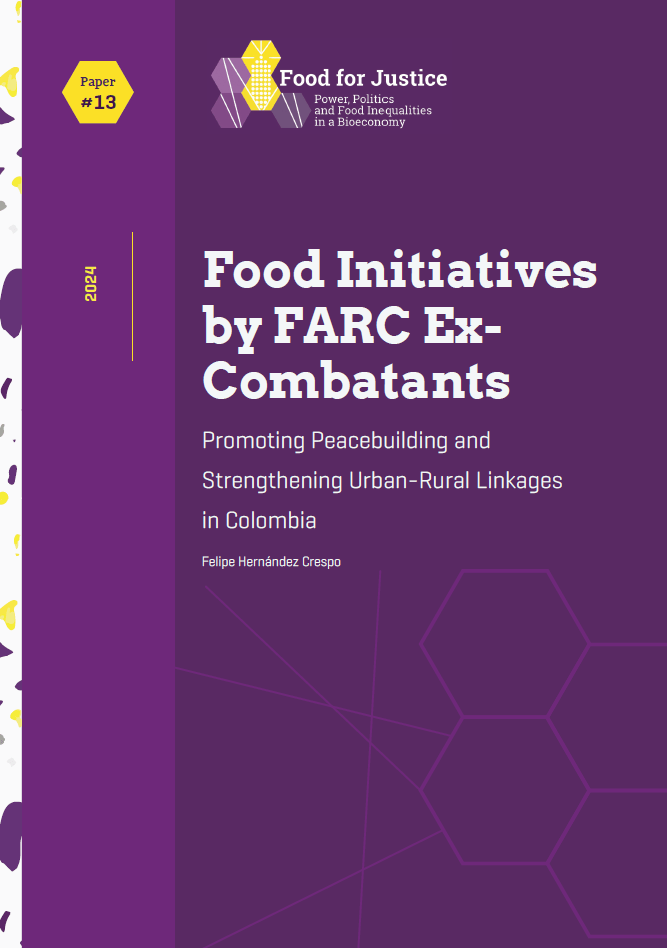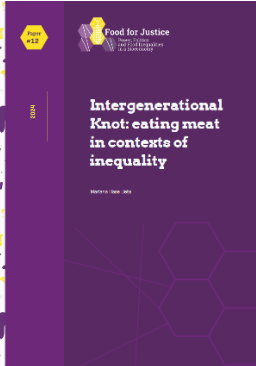Our Publications
Multidisciplinary Journal for Circular Economy and Sustainable Management of Residues • 2024
SUSTAINABLE INTERVENTIONS TO MANAGE RETAIL FOOD WASTE: A SCOPING REVIEW
Abstract
The article addresses food waste (FW) in the retail sector and its impact on the economy, sustainability, food security, and climate. It presents a scoping review that identifies and categorizes 43 studies on interventions to reduce retail FW, sourced from four electronic databases.
The review found 132 interventions across 41 countries, primarily in Europe (73.2%), with supermarkets implementing 86.4% of these initiatives, targeting both consumers (50.8%) and their operations (46.2%). Interventions were classified into seven categories using a food waste hierarchy framework, focusing on preventive measures such as awareness campaigns, price reductions, operational optimizations, legal regulations, and food repurposing through donations. These strategies are promising and warrant further exploration, with about half quantifying their environmental, social, and economic impacts.
The findings emphasize the need for increased research investment in the global South.
Rethinking sustainability in urban areas • 2024
Sustainable Interventions to Manage Retail Food Waste in São Paulo and London
Abstract
Published in the book “Rethinking sustainability in urban areas” Lea Zentgraf contributed to the chapter “Sustainable Interventions to Manage Retail Food Waste in São Paulo and London” along with Ana Maria de Castro, Cézar Luquine Jr., Daniel Conde and Ribka Metaferia by addressing urban social and environmental issues like green space degradation, homelessness, and food waste. The research, part of the ‘Global Research Academy’ program, involved doctoral researchers from the University of São Paulo, Freie Universität Berlin, and King’s College London. The study took place in London, Berlin, and São Paulo, comparing these cities’ unique challenges and drawing recommendations for sustainability. The findings, supervised by Professors Fabio Kon, Sérgio Costa, and Dr. Robert Cowley, are available via the USP repository. The program was supported by international cooperation offices from the participating universities.
Springer link • 2024
Broadening the Climate Movement: The Marcha das Margaridas’ Agenda for the Climate (and Other) Crises
Abstract
Climate movements led by students and the youth worldwide (and in particular, those in richer economies) have been recognized as having a formidable voice and making important contributions towards a more radical societal transformation to face the climate crisis. However, little is said about the contribution of popular sectors, who have been mobilizing for decades and demanding broader structural transformations—with proposals that tackle environmental issues more broadly and the climate crisis in particular—but who are not directly involved in climate politics arenas, such as the United Nations Climate Change conferences. Usually portrayed as vulnerable, as those most affected by climate events, as victims and receivers of adaptation strategies, or, as resilient, rarely do popular sectors appear as agents of transformation. Critical scholars have advocated for understanding the climate crisis as part of multiple crises, including the biodiversity crisis, a crisis of care, and a crisis of democracy. Situating our article within this scholarship, we argue that the scholarly and societal debate on climate change will further benefit from broadening the scope of which social subjects are considered as part of the climate movement. Based on our research with rural popular feminist movements in Brazil, and in particular, the coalition Marcha das Margaridas, we address the following questions: how are their diagnostics of, and proposals to, overcome the climate crisis embedded in their broader project of transformation? Additionally, how does their political identity within class, gender, and rural categories of inequality inform their positions?
The International Journal of Sociology of Agriculture and Food • 2023
Food Movements, Resistance, and new digital repertoires in (post-)pandemic times
Abstract
While the Covid-19 pandemic demonstrated the vulnerability of the global food system, new resilient repertoires of collective action also showed how to overcome the multiple dimensions of this crisis. Food movements played an important role in creating innovative alternatives for a more just food system. In Germany, the pandemic affected and continues to affect agri-food relations. This article argues that digital communication was an important tool to connect people for purposes beyond sharing food and supporting food-related needs. Social media became a virtual platform for social mobilisation and innovation around food alternatives during and in a (post-) pandemic world. Two relevant actors in the German food mobilisation were the protest campaign Wir haben es satt! and the food movement Slow Food Germany. The work presented here is based on digital ethnographies and an analysis of documents from the period 2020-2022. The analysis focuses on how these two movements dealt with the crisis scenario, in relation to three classic levels of protest and social movement research: (1) actor level; (2) action level; and (3) transformation level. The comparison shows that both movements developed innovative digital and hybrid repertoires of collective action, and fostered coalitions between actors fighting for a socio-ecological transformation of the food system.
Debates en Sociología N° 57 • 2023
Soberanía alimentaria y feminismo popular en Brasil
Abstract
The Marcha das Margaridas is a coalition of feminist and women’s movements, agrarian movements, unions, and international organizations that emerged in the year 2000. The process is led by women’s organizations that are part of a confederation of rural workers. Although its initial program included class demands focused on gender for the recognition of women’s work in food production, access to land titles, and labor rights, the Marcha das Margaridas progressively incorporated other issues such as agroecology and food sovereignty. This article addresses three questions: How did food sovereignty enter its agenda? How do they interpret the concept of food sovereignty? How can food sovereignty be understood from a (popular) feminist perspective? Through an analysis of political documents, we identify five main themes in the discourse of the Marcha das Margaridas on food sovereignty: 1) food as a right and common good; 2) state support for women’s food production; 3) the value of non-commercialized food work; 4) environmental recovery through agroecology; 5) violence-free food produced within respectful social relationships.
Estudos Sociedade e Agricultura magazine • 2023
Mulheres jovens trabalhadoras rurais: a emergência de uma nova categoria política e suas repercussões no sindicalismo rural
Abstract
The intended objective of this article was to analyze the interactions between the political categories ‘rural women workers’ and ‘rural youth workers’ within the National Confederation of Rural Workers, Farmers, and Family Farmers (Contag), highlighting the contributions and tensions generated in union action, especially with the increased participation of ‘young rural women workers’ as a distinct political category in unionism. The research was based on qualitative methodology, with a primary focus on the biographical narratives of three directors of Contag, in addition to institutional documents.
Among the main conclusions is that rural women workers inaugurated a form of action based on three pillars, directed towards the establishment of: i) specific spaces and processes for training and self-organization; ii) measures to expand participation conditions; iii) collective actions of a public nature. Thus, they institutionalized conditions for the emergence of other political categories, intersecting gender, generation, and class. It is from this process that young rural women workers emerge, claiming this political identity and weaving a field of articulation that resonates in unionism, advocating new approaches to issues present in the union agenda and competing for power and visibility on their concerns.
Working Paper Series
Working Paper 15 • 2025
Solidarische Landwirtschaft (CSAs) in Germany: Drivers of change for a socio-ecological transformation of the food system?
Abstract
In face of a multiple crisis within the current corporate food system, alternative models of food production and distribution have attracted increasing attention as catalysts for a socio-ecological transformation. Among these alternative models, Community Supported Agriculture (CSA) or as it is called in Germany, Solidarische Landwirtschaft (Solawi), emerges as a promising model for reshaping the socio-ecological landscape of food production and consumption. By shedding light on the transformative potentials and limitations of Solawis in the framework of a socio-ecological transformation of the local food system this paper aims to share knowledge and a further perspective on the question “How are we going to feed the world?”, the leading question of this working paper series. Through semi-structured expert interviews conducted in fall 2023 within two case studies around Berlin, the Apfeltraum Solawi and the Spörgelhof e.G. and a subsequent qualitative content analysis this work shares relevant insights across diverse domains of Solawi work, such as community-building, relationship with nature, fair wages and ecological farming practices.
Working paper 14 • 2024
Práticas de aquisição de alimentos e do comer no Brasil em tempos de pandemia
Abstract
The Covid-19 pandemic impacted social relationships, including dynamics asso-ciated with food practices. This study aims to identify and analyze changes in food purchasing and eating practices in Brazilian households in the first year of the pan-demic. The analysis is based on data from a representative public opinion survey of Brazil conducted through telephone interviews between November 21 and Decem-ber 19, 2020. The results indicate changes in food purchasing and eating practices, with a decrease in the frequency of leaving the house to buy food (68.9%) and to have meals outside the home, either at commercial establishments (74.4%) or at the homes of acquaintances (72.9%). These downward trends, motivated by social distancing recommendations to curb virus spread, vary depending on socio-eco-nomic markers, notably gender, race, income, and food security status. Regarding food purchasing practices, the digital environment became more widely used, either through online shopping or supermarket apps with home delivery (e-commerce) or through food delivery services. This trend was observed among both users already familiar with these channels and new adopters. On the other hand, open-air markets were less frequented by respondents for food purchases in the first year of the pan-demic, with a 66.1% decrease in frequency among those who used these services before the pandemic. This change in food purchasing practices may lead, on the one hand, to greater exposure to ultra-processed foods and meals with unfavorable nu-tritional profiles, and, on the other, reduced access to channels for fresh and heal-thier food. Finally, this trend also reinforces food purchases from large supermarket chains while weakening small-scale vendors at open-air markets.
Working Paper 13 • 2024
Food Initiatives by FARC Ex-Combatants: Promoting Peacebuilding and Strengthening Urban-Rural Linkages in Colombia
Abstract
This working paper explores how food initiatives led by FARC ex-combatants contribute to peacebuilding and strengthen urban-rural linkages in Colombia. The study investigates the motivations behind ex-combatants’ involvement in food initiatives, examines the connection between economic reincorporation and peacebuilding, and analyses how food acts as a bridge, materialising peace between urban and rural communities. Using a multi-method approach, this paper provides an overview of FARC’s political trajectory, highlighting its shift from armed insurgency to peacebuilding actor. It further maps the landscape of ex-combatant food initiatives, analysing their scale, organisational structures, roles within the food system, and the intersectional categories that shape them. Findings indicate that ex-combatants often view food-related projects as integral to economic reincorporation, motivated by a blend of campesino heritage, former guerrilla identity, and established regional production knowledge and practices. This combination emphasises the importance of urban-rural linkages in shaping collective reincorporation processes. These food initiatives, grounded in principles of territorial peace, align with broader peacebuilding efforts, aiming to strengthen urban-rural connectivity. Ultimately, this research underscores the critical role of food systems in building lasting peace and highlights the voices and agency of ex-combatants in shaping their futures.
Working Paper 12 • 2024
Intergenerational Knot: eating meat in contexts of inequality
Abstract
The Anthropocene is not only a period of rapid environmental transformation but also a prolific moment of values changes. While the temporality dimensions of this phenomenon are a challenge to social sciences inquiry, it also presents a great opportunity for new methodologies to emerge. The intergenerational knot can be a useful methodological frame for understanding social change through the discussion of different values across different generations because, at the same time, it evidences differences and disagreement; it also carries the potential of mutually influencing and multiplying new food consumption practices. The present article focuses on intergenerational discussions through the case study of meat consumption. The young generation analyzed usually prioritizes environmental impact when choosing what to eat, however, other factors exert more significant influence on the family food consumption, such as their experiences of food deprivation, their views of what a “better life” consists, and their experience of social mobility. Therefore, first-hand ethnographic data was collected from university students who negotiated between personal values and family narratives around their household meat consumption in Campinas, São Paulo, Brazil. The intergenerational knot becomes a useful methodological frame to understand values change in social and environmental transformation processes in an inclusive way.
Working Paper 11 • 2024
Food Movements in Germany. Analysis of actors in the socio-ecological transformation of the food system
Abstract
Around the world, social movements are protesting against the corporate food regime (Friedmann & McMichael, 1989), denouncing the injustices associated with its structural dynamics of neoliberal capitalism, patriarchal domination, racism, coloniality, epistemic violence, and anthropocentric exploitation (Motta, 2021b; Holt Giménez & Shattuck, 2011; Holt-Gimenez & Patel, 2012). Many food movements are calling for a socio-ecological transformation and creating alternative forms to produce, share, prepare, consume and dispose of food, based on relations of care, solidarity and respect. In their heterogeneity, they provide a good analytical lens to explore the multiple and intersectional dimensions of food inequalities denounced and the directions of change desired by organized movements from civil society (Motta, 2021a). But which are the food movements that mobilize for a socio-ecological transformation of food politics in Germany? What are the main dimensions and intersections of inequalities addressed by them?
Based on an explorative mapping, this research identifies relevant food movements in Germany, their discourses and agendas. It takes as units of analysis food movements organizations with considerable collective actions and participation in social mobilization on a national scale during the last 5 years (2018-2023). Using an analytical framework elaborated in dialogue with theoretical and conceptual works on food movements, food inequalities, and dynamics of transformation in the food regime, the empirical data is presented along the categories: types of movements and activist discourses, time of emergence, juridical form, dimensions of food inequalities addressed, categories of intersectional inequalities considered, spatial locus of action (urban/rural), phases of the food system, sphere of social change most frequently targeted by the food movements. Based on the data, the dynamics of transformations are discussed.
Applying a qualitative and quantitative methodology which combined content analysis and coding, the research results in a mapping of the actors (Mayring & Fenzl, 2019; Saldaña, 2021). This working paper aims to give a first overview of food activism in Germany by assessing the actors in this field of social mobilisation and analysing their emancipatory potentials and limits.
Working Paper 10 • 2024
Kurzauswertung Befragung „Wir haben es satt!“ 2024
Abstract
The large-scale protest “We’re Fed Up!” organized by the My agriculture alliance has been taking place every year since 2011 at the start of the Green Week agricultural trade fair in Berlin. The alliance campaigns for sustainable and fair agriculture and food production and calls for a turnaround in agriculture and nutrition. “We’re fed up!” is one of the central case studies of the BMBF junior research group Food for Justice: Power, Politics and Food Inequalities in a Bioeconomy at the Heidelberg Center for Ibero-American Studies, Heidelberg University. The project investigates different axes of food inequalities, in various scales and spatialities, and their dynamics of reproduction and change in food politics. The case study “We’re fed up!” explores the key justice demands that mobilize citizens to denounce food inequalities and call for alternative food policies in different regions of the world. On January 20, 2024, researchers from Food for Justice conducted a survey with participants in the “We’re fed up!” protest with the support of volunteer interviewers. The collected data provides insights on the demographics of the protesters, their concerns, political attitudes, and how they contribute to supporting a different approach to agriculture through their consumption and lifestyle choices. This brief summary presents the methods and selected results of the survey.




